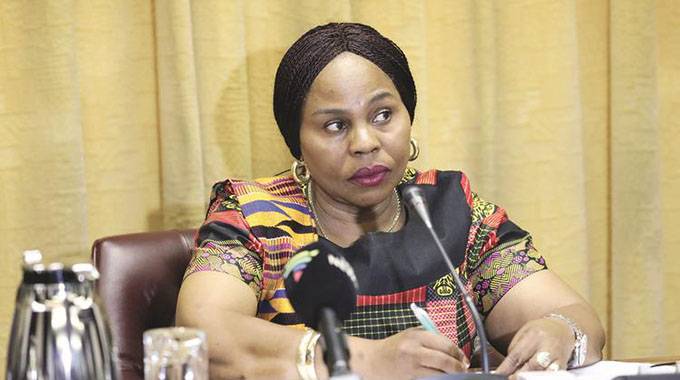Calls grow for inclusion, protection of marginalised groups in mining
CALLS are growing for the inclusion and protection of marginalised groups in mining, amid revelations that women, persons living with disabilities and the youth continue to face challenges getting opportunities in the sector.
The marginalised groups continue facing challenges that include abuse, violence, lack of capital and machinery, as well as discrimination, among other constraints.
This was revealed during a joint fact-finding visit and public hearing undertaken by the Portfolio Committee on Mines and Mining Development and the Thematic Committee on Gender and Development in Gwanda District, Matabeleland South Province, on Monday.
In an interview at Mthandazo Women Miners Association Trust, Thematic Committee on Gender and Development chairperson Senator Sisasenkosi Ndebele said it was critical to tackle challenges faced by the marginalised groups in the mining sector.
“Some of the challenges highlighted include a lack of resources and equipment to use, which are hindering their productivity.
“These groups also face discrimination from men in the sector as most of the work is done under men and women do not have claims,” she said.
“Another key challenge are the attacks these marginalised groups face. We heard stories of machete gangs that attack women, persons with disabilities and youth in mining.
“There are issues of harassment and sexual abuse as well, among all sorts of intimidation.”
She said they would engage the ministries of Mines and Mining Development and Home Affairs and Cultural Heritage to find solutions to challenges facing the marginalised groups in mining and guarantee their security.
Senator Ndebele said access to resources such as machinery and equipment was critical to boost production among the marginalised groups, who live from hand to mouth.
“There are people who are trying to earn a living from mining, but due to a lack of resources and security, they are not able to be fully productive at these mines and some of them end up being forfeited.”
Mthandazo Women Miners Association Trust founder, Mrs Sithembile Ndlovu, said accessing claims for women was a big challenge.
“Most women are working on tributes, unaware of what percentage should be taken from them. This has left a lot of women exposed to unfair disputes and fruitless labour.
“Women not having their claims has been a great challenge because they cannot directly take the gold to Fidelity (Gold Refiners) on their own; the owner has to do it, leaving them with no record of their input at the bank,” she said.
“As an association, we have also been trying to get claims for women, but it has been difficult as we are being offered dry, unproductive land. We have about 30 women, 11 youth and two persons with disabilities under us.”
Another woman miner, Ms Priscilla Masuku, said security was a great challenge as women did not feel safe at their mines and homes due to frequent invasions.
“As women, we are more vulnerable to the invasions. We are not safe anymore, especially women having to deal with air pollution (cyanidation process).
“There is a need for tight security if one is in possession of gold. Some women miners in Gwanda and surrounding areas have been victims of machete gangs and these traumatic experiences have led to injuries and loss of lives.
“Security companies are very expensive for us as women (miners) are slowly trying to grow,” she said.
Miss Sanele Ndlovu said youth in mining, most being young women, were being abused as they attempt to also work in a claim or tribute.
“It is saddening to observe the way the youth are being taken advantage of because they want to be involved in the mining sector and also earn a living.
“The lack of exposure is leaving the girl child vulnerable as most abuse of young women is happening in this field, from young women moving around selling items to artisanal miners to others seeking claims to work on from men,” she said.
She said they also require training to acquire geological knowledge, to know the constitution, statutory instruments, laws and regulations that govern mining.
According to Miss Ndlovu, this would create an opportunity for women to grow their mining businesses because most of them cannot stand up for themselves and have limited knowledge about their rights.
The joint committee is currently enquiring into the implementation of the National Gender Policy in the mining, extraction and mining value chain across the country.
The fact-finding visits and public consultations with small and medium women, persons with disabilities, and youth-owned mining and mining value chain will assess challenges faced in the sector.-herald









